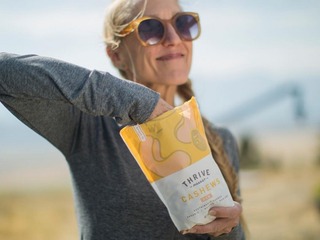DUOS expands AI capabilities to help seniors apply for assistance programs
It will complete and submit forms, and integrate with state benefit systems
Read more...Editor's note: Our Post Seed VC event is coming up on Dec. 1 in San Francisco. We'll have Chamath Palihapitiya (Founder of Social Capital), Aydin Senkut (Felicis), Jeff Lawson (Founder & CEO, Twilio) and more. Check out the full lineup and register for tickets before they jump! Post Seed is brought to you by Vator, Bullpen Capital, and Haystack.
 Your typical venture capitalists—affluent white men—had difficulty understanding the pain point Thrive Market was setting out to solve in its early days, according to Nick Green, the company’s co-founder and co-CEO.
Your typical venture capitalists—affluent white men—had difficulty understanding the pain point Thrive Market was setting out to solve in its early days, according to Nick Green, the company’s co-founder and co-CEO.
“How do you differentiate from Whole Foods?” they would always ask.
From the beginning, Thrive Market’s mission has been to make healthy living more affordable and more accessible for the average American family. Green told me over the phone that 70 percent of Americans don’t live within driving distance of a Whole Foods, so he clearly saw an opportunity to deliver organic and non-GMO groceries to those markets.
Ultimately, however, Thrive Market was rejected by over 50 VCs and angel investors in the early days because they couldn’t see the promise of that vision. In spite of those early rejections, Thrive managed to raise $10 million anyway from influencers, bloggers, and YouTube stars who were already on board with the company’s vision.
Thrive Market eventually went on to raise an oversubscribed $30 million Series A, which Green boasted is the largest Series A ever raised by a Los Angeles-based e-commerce company. A year later, the company raised an opportunistic $111 million Series B, allowing Thrive to sit “out of the fundraising game” for awhile now, according to Green.
So the capital has flowed in and investors are on board with the mission: but who are these mysterious customers that Thrive Market is serving? What do they look like? What about them made it so easy for the affluent white male VCs to overlook?
“We’re not going after the lifelong Whole Foods shopper who lives in New York or LA or San Francisco, is relatively price-insensitive, and has a Whole Foods within driving distance if not walking distance,” said Green. “We’re really focused on the middle class, largely moms, who are becoming increasingly aware of the effects of eating high sugar, heavily processed diets that have become so widespread.”
“They want to get healthy and want to make better, healthier decisions for their family, but they’re also living within the constraints of a budget.”
He told me that 50 percent of Thrive Market’s membership base is in the Midwest and Southeast—not your typical bastions of highly affluent urban metropolises. Additionally, the company’s eastern fulfillment center is in Indiana instead of New Jersey or Pennsylvania, which is atypical but central to serving its large numbers of customers in the Midwest.
Furthermore, Green shared that 85 percent of Thrive Market’s customers are female and mostly heads of household—and the average household income is under $100,000.
So success for Thrive Market means not just delivering a Whole Foods-like inventory to more people but also making items more cost-effective through its wholesale model.
Finally, just to get a better picture of the Thrive Market customer (and perhaps to clear up my own misconceptions about the typical Midwestern mom), I asked Green to share a few of the top-selling items on Thrive Market:

1. Thrive Market’s Organic Virgin Coconut Oil — $7.95 for a 15 oz. jar — An “all-purpose health assist” that Green says customers use for everything from cooking to spreading on toast to lathering in hair as conditioner to rubbing on skin as a moisturizer. He also said it’s one of the few organic coconut oils you can find that’s virgin and fair trade.

2. Thrive Market Ghee — $9.95 for a 14 oz. jar — A clarified butter used as a condiment and/or cooking oil, popularly associated with Indian cooking.

3. Paleo products — From bone broth to salmon, the food you’d supposedly find in a Neolithic or caveman diet has become one of the trendiest fads of the past decade. Green says paleo products in general have been popular on Thrive Market, spurring the company to offer a 10-item Paleo Starter Kit priced at $59.95 for curious eaters.
It will complete and submit forms, and integrate with state benefit systems
Read more...The bill would require a report on how these industries use AI to valuate homes and underwrite loans
Read more...The artists wrote an open letter accusing OpenAI of misleading and using them
Read more...



